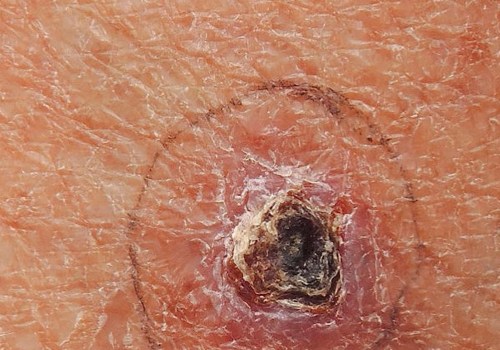Melanoma is a type of skin cancer that develops in the cells that produce melanin, the pigment that gives skin its color. It is the most serious type of skin cancer and can spread to other parts of the body if not treated early. Melanoma can occur in people of all ages, but it is most common in adults aged 25-50. It is also more common in people with fair skin, light eyes, and those who have had a lot of sun exposure.
The first sign of melanoma is usually a change in the size, shape, or color of an existing mole. It may also appear as a new mole or spot on the skin. Melanomas can be black, brown, or even pink. They may be flat or raised and may have an irregular shape.
If you notice any changes in your moles or spots on your skin, it is important to see a doctor right away. Your doctor will examine your skin and may take a biopsy to determine if it is melanoma. If it is melanoma, your doctor will discuss treatment options with you. Treatment for melanoma usually involves surgery to remove the cancerous cells. In some cases, radiation therapy or chemotherapy may also be used.
It is essential to take steps to reduce your risk of developing melanoma. This includes avoiding direct sun exposure during peak hours (10am-4pm), wearing protective clothing when outdoors, and using sunscreen with an SPF of 30 or higher. Additionally, regularly checking your skin for changes can help you detect melanoma early.
Melanoma can be a serious condition, but it is highly treatable if caught early. By taking preventive measures such as avoiding direct sun exposure and using sunscreen, as well as regularly monitoring your skin for changes, you can reduce your risk of developing this type of skin cancer.










